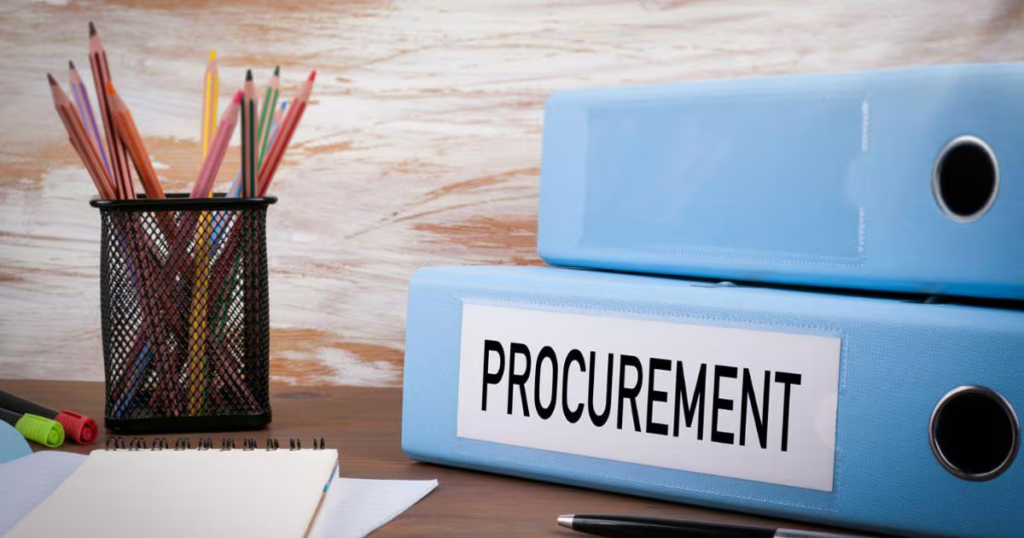Agent Roles in Emergency Procurement: Rapid Response with Reliable Results

In moments of crisis—natural disasters, pandemics, or supply chain disruptions—emergency procurement becomes a critical lifeline. Governments, NGOs, and corporations must act fast to source essential goods such as medical supplies, food, water, generators, and construction materials. This is where sourcing agents play an indispensable role.
Whether you’re operating in Southeast Asia, the Middle East, or globally, understanding the agent’s responsibilities in emergency procurement is vital to ensuring transparency, speed, and accountability during high-stakes operations.
🔍 What Is Emergency Procurement?
Emergency procurement refers to the fast-tracked acquisition of goods or services required during a crisis. It bypasses standard procurement procedures, enabling agencies or businesses to act quickly without sacrificing quality or compliance.
Typical emergency scenarios include:
- Natural disasters (earthquakes, floods, hurricanes)
- Health crises (COVID-19, Ebola outbreaks)
- Political or economic instability
- Supply chain disruptions due to war or trade bans
🌐 Read: How Agents Navigate Product Customization Requests
👩💼 The Critical Role of Sourcing Agents in Emergencies
Sourcing agents act as rapid-response facilitators, managing suppliers, quality, and logistics in record time. Their local knowledge, supplier networks, and ability to negotiate under pressure make them ideal partners during emergencies.
Key Responsibilities:
- Supplier Identification & Vetting
- Agents use pre-vetted databases or leverage local networks to quickly identify suppliers that can meet urgent demands.
- In emergency contexts, reliability and past performance often matter more than low price.
- Real-Time Price Negotiation
- Agents help buyers avoid price gouging, especially for high-demand items like PPE, oxygen tanks, or pharmaceuticals.
- They may negotiate bulk discounts or leverage government partnerships to secure fair terms.
- Regulatory Compliance & Documentation
- Emergency procurements still require documentation—especially for customs and cross-border shipping.
- Agents ensure proper HS codes, certifications, and declarations are in place to avoid delays.
- Quality Assurance
- Rapid sourcing doesn’t mean poor quality.
- Sourcing agents coordinate with third-party inspectors or rely on their own QC systems to verify critical specs.
- Last-Mile Logistics
- Deliveries often go into hard-to-reach or hazardous zones.
- Agents arrange airlifts, expedited cargo, or local fleet delivery, depending on urgency and infrastructure.
💡 Read: How to Optimize Incoterms for Global Logistics Agreements
🌏 Real-World Case: Sourcing Oxygen Equipment During COVID-19
In 2021, during India’s COVID oxygen crisis, dozens of NGOs and international companies urgently needed oxygen concentrators, cylinders, and ICU-grade equipment. Sourcing agents in China, Vietnam, and Malaysia were contacted to procure, consolidate, inspect, and ship these goods within 48–72 hours.
Tasks performed by agents included:
- Verifying CE and ISO certifications
- Vetting factories producing oxygen devices
- Arranging chartered air freight
- Managing government clearance for priority imports
📌 Reference: UNICEF Supply & Procurement Guidelines
🔐 Due Diligence Under Pressure: Avoiding Fraud and Scams
Emergencies attract opportunists. Fake suppliers, counterfeit goods, and inflated quotes can derail efforts.
Sourcing agents help prevent this through:
- Verification of factory licenses
- Site inspections (remote or in-person)
- Cross-checking compliance documents
- Use of escrow or secured payment platforms
🔗 Tools to consider:
📋 Best Practices for Agents in Emergency Procurement
- Keep Prequalified Supplier Lists
- Maintain a database of pre-vetted vendors for categories like food, medicine, tents, and generators.
- Use Emergency Response Checklists
- Include a step-by-step guide covering supplier verification, pricing, QA, compliance, and logistics.
- Build a Multilingual Network
- Emergencies often involve cross-border communication. Agents fluent in English, Chinese, Spanish, or French can handle faster turnarounds.
- Stay Updated on Tariff & Customs Rules
- For example, tariff exemptions during emergencies (e.g., medical equipment during pandemics) must be used wisely.
- Partner with NGOs and Governments
- Long-term contracts with organizations like the World Food Programme, Red Cross, or USAID can keep sourcing agents on priority call lists.
💡 Related: The Value of Local Knowledge in Sourcing
🧩 Emergency vs. Traditional Sourcing: What’s Different?
| Criteria | Traditional Sourcing | Emergency Sourcing |
|---|---|---|
| Timeline | Weeks to months | Hours to days |
| Supplier Selection | Multiple quotes, long vetting | Speed over price |
| Legal Formalities | Detailed contracts | Simplified documents |
| Risk Management | Shared | Heavily on agent |
| Logistics | Container shipping | Air, land express, multi-modal |
💼 How ProductSourcing-Agent.com Can Help
At ProductSourcing-Agent.com, our network of experienced agents in Asia and beyond are trained in crisis response protocols. Whether you’re an NGO preparing contingency plans or a business navigating unexpected shutdowns, our team offers:
- Pre-screened emergency suppliers
- Bilingual negotiation & documentation
- Full-spectrum sourcing to logistics handling
- Compliance and ethical sourcing transparency
📩 Contact us now for emergency procurement support
🚀 Final Thoughts: Preparedness Meets Execution
Emergency procurement is not just about speed—it’s about smart, secure, and ethical sourcing under pressure. The agents who rise to the challenge are not just facilitators—they’re crisis responders, negotiators, and problem-solvers rolled into one.
In a world of rising global uncertainties, sourcing agents who master emergency procurement will be among the most valuable assets in international trade.